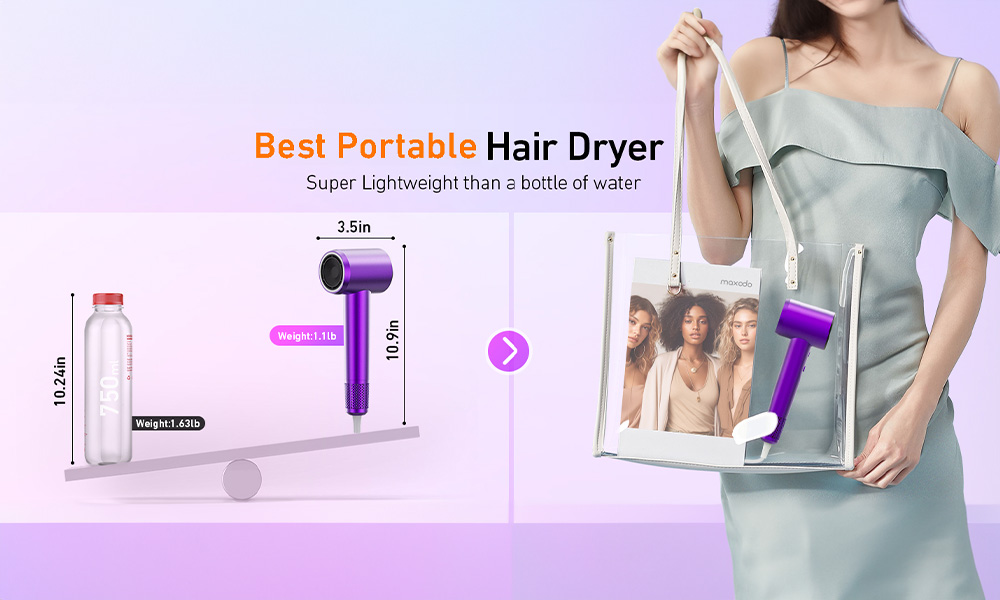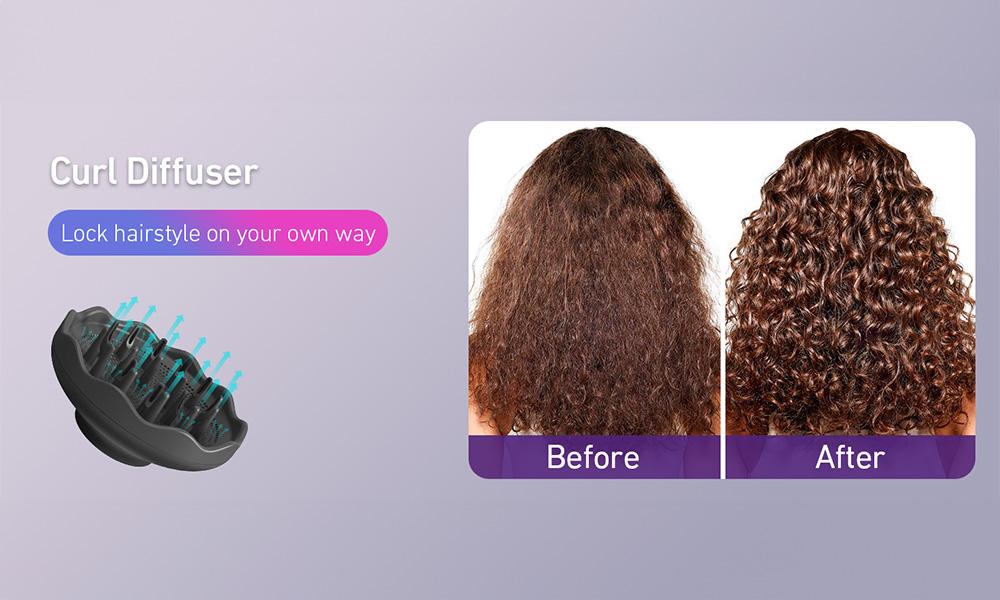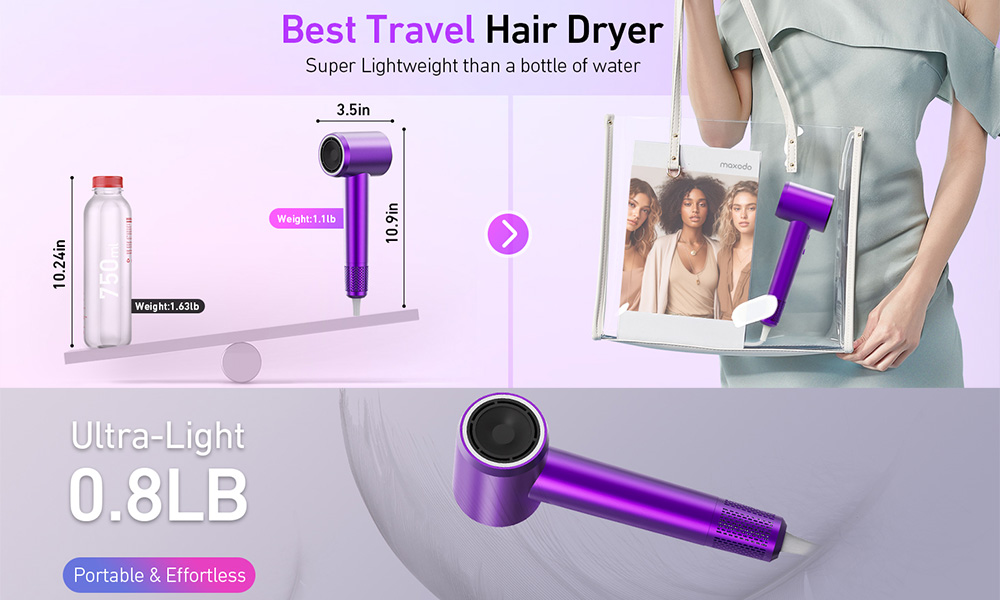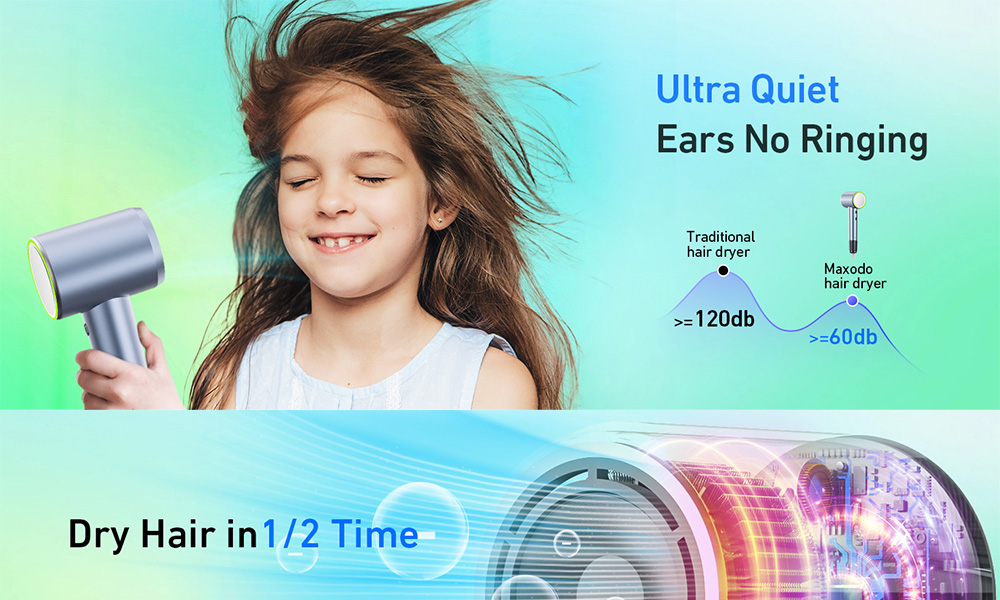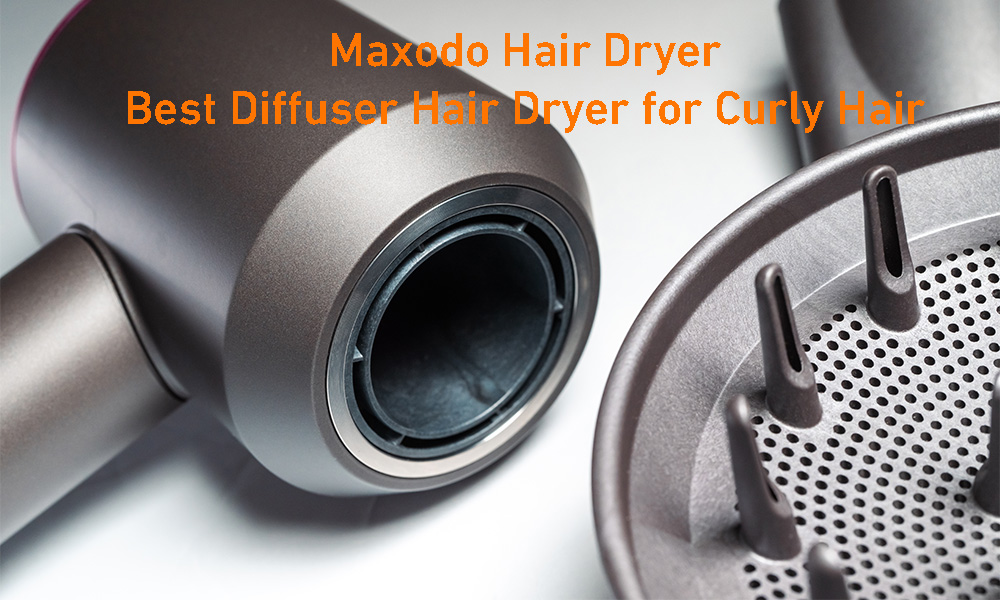
- Home
- Hair Dryer
- Hair Care Tips
- 10 Essential Nutrients for Healthier, Stronger Hair Growth
10 Essential Nutrients for Healthier, Stronger Hair Growth
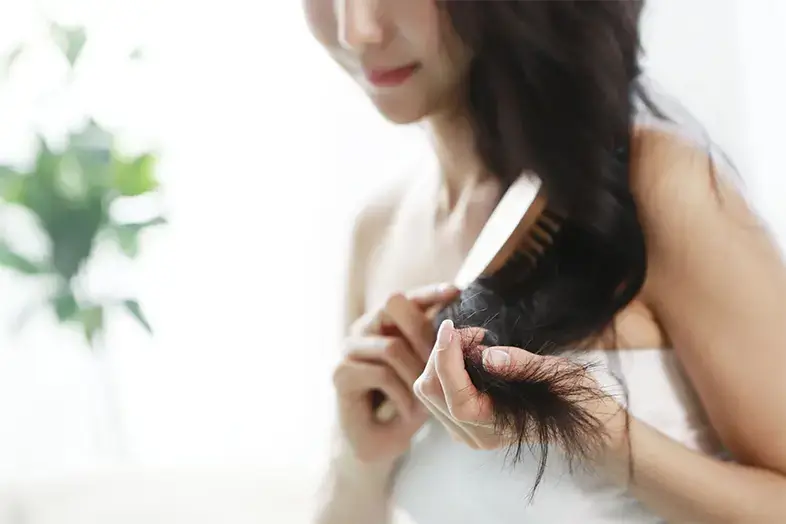
Healthy, vibrant hair is not just a matter of genetics; it’s also about the care we give it, and a significant part of that care comes from the inside out. The nutrients we consume can profoundly affect the health, strength, and appearance of our hair. Just like every other part of our body, our hair needs a balanced diet rich in essential nutrients to grow and remain strong. A deficiency in these nutrients can lead to various hair problems, including dullness, brittleness, and even hair loss.
Nutrition plays a critical role in hair growth and strength. Hair follicles are among the fastest growing cells in the body, and like other fast-growing cells, they require a robust supply of nutrients to proliferate. The right balance of vitamins, minerals, and proteins supports the hair growth cycle, aids in the repair of hair tissue, and protects hair from environmental damage. A well-nourished scalp is the foundation of healthy hair growth, ensuring that hair grows strong and is less prone to breakage and shedding.
1. Protein: The Building Block of Hair
Understanding How Protein Contributes to Hair Structure and Resilience
Protein is fundamental to hair health because hair is primarily made of keratin, a type of protein. Adequate protein intake is crucial for the body to produce keratin. When the diet lacks sufficient protein, it can lead to weak, brittle hair and, in severe cases, a reduction in hair density. Protein’s role extends beyond just the formation of hair; it’s also vital for the resilience and elasticity of hair strands, helping them withstand daily wear and tear.
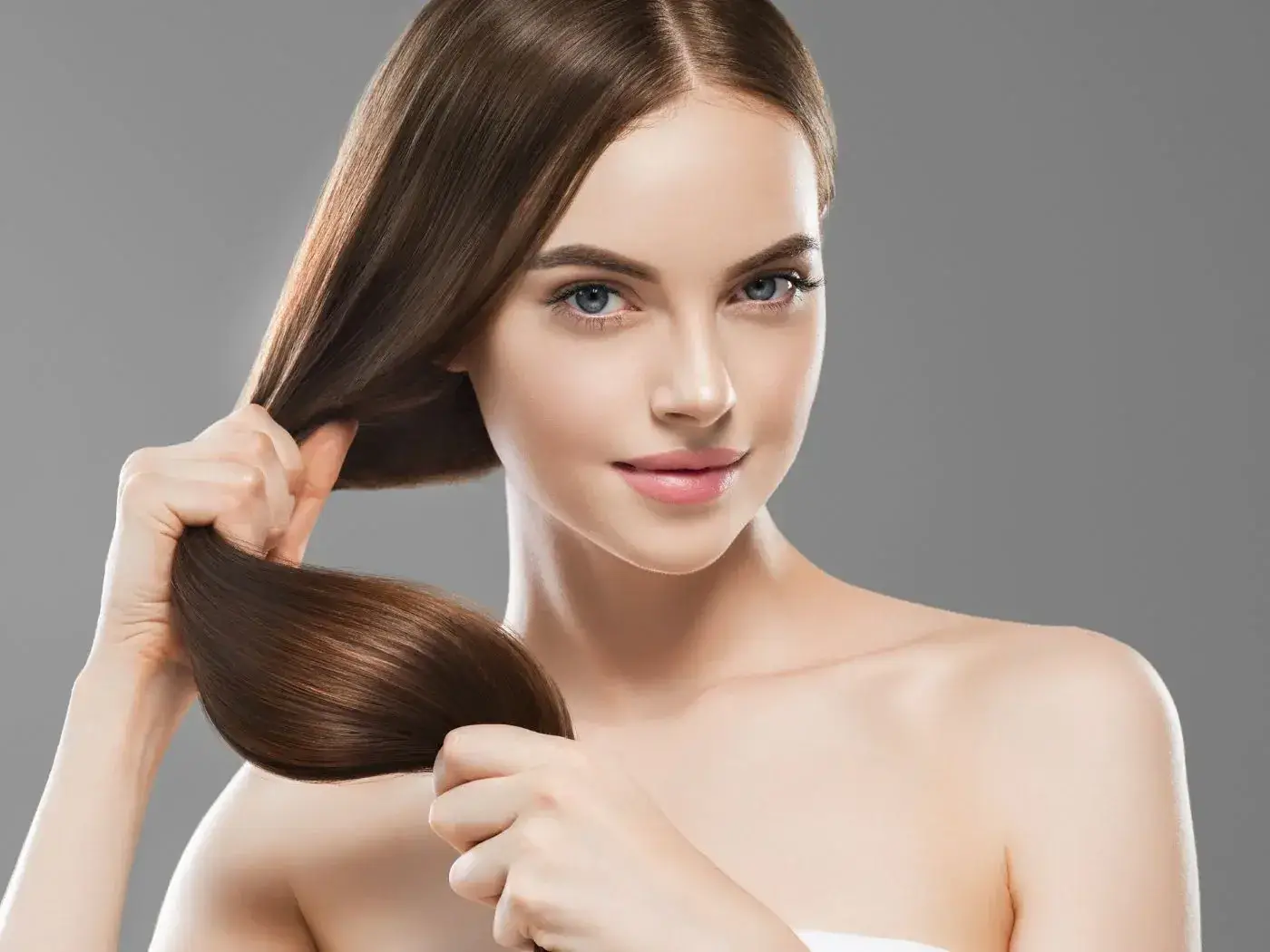
Best Sources of Protein for Hair Health
To ensure your hair gets enough protein, incorporate a variety of protein-rich foods into your diet. Good sources include lean meats, fish, poultry, eggs, and dairy products. For vegetarians or those looking to diversify their protein sources, legumes, nuts, seeds, and soy products like tofu and tempeh are excellent options. Regular intake of these foods can support the overall health of your hair and aid in its growth and strength.
2. Vitamin A: For Scalp Health and Sebum Production
The Role of Vitamin A in Healthy Cell Growth and Sebum Production
Vitamin A is crucial for all cells’ growth, including hair, the body’s fastest-growing tissue. It also helps the skin glands produce sebum, an oily substance that moisturizes the scalp and keeps hair healthy. Without adequate Vitamin A, the scalp can become dry and irritated, leading to dandruff and, potentially, hair loss. However, it’s important to note that excessive Vitamin A can also contribute to hair loss, highlighting the need for balance.
Natural Dietary Sources of Vitamin A
For a healthy scalp and hair, include foods high in Vitamin A in your diet. Excellent sources are sweet potatoes, carrots, pumpkins, spinach, and kale, all of which are rich in beta-carotene, which the body converts into Vitamin A. Liver and fish oils are also high in Vitamin A, providing a more direct source of this essential nutrient.
3. Vitamin C: Antioxidant Power for Strong Strands
How Vitamin C Supports Hair Shaft and Prevents Premature Aging
Vitamin C is a powerful antioxidant that protects against the oxidative stress caused by free radicals. This protection is vital for your hair, as oxidative stress can lead to hair aging and greying. Furthermore, Vitamin C is essential for creating collagen, a key part of hair structure, and aids in iron absorption, a mineral necessary for hair growth.
Foods Rich in Vitamin C
Incorporate Vitamin C-rich foods into your diet to support healthy hair. Citrus fruits like oranges, grapefruits, and lemons, as well as strawberries, bell peppers, guavas, and kiwis, are excellent sources. A diet abundant in these foods can help ensure that your hair remains healthy, strong, and vibrant.
4. Vitamin E: The Protector
Vitamin E’s Role in Protecting Hair from Oxidative Stress
Vitamin E is another potent antioxidant that helps protect the scalp and hair from damage. It can absorb harmful UV light and protect the skin of the scalp, thereby preventing hair follicles from damage. Vitamin E also has anti-inflammatory properties, which can help maintain scalp health and prevent hair loss.
Where to Find Vitamin E in Your Diet
Nuts and seeds are among the best dietary sources of Vitamin E. Almonds, sunflower seeds, and hazelnuts, in particular, are not only rich in this nutrient but also make for convenient, healthy snacks. Additionally, green leafy vegetables like spinach and broccoli provide Vitamin E, making them essential components of a hair-healthy diet.
5. B Vitamins: Cellular Support and Growth
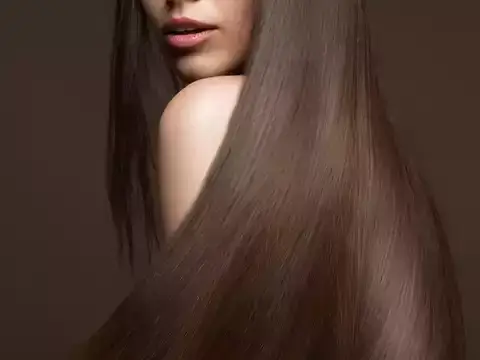
The Critical Roles of B Vitamins, Especially Biotin, in Hair Growth
B Vitamins play an indispensable role in the overall health of your hair, with each type contributing uniquely. Among them, Biotin (Vitamin B7) is particularly lauded for its direct impact on hair growth and strength. It works by improving the body’s keratin infrastructure, a fundamental protein that makes up hair, skin, and nails. Studies suggest that biotin deficiencies can lead to hair loss, which underscores the importance of B7 in maintaining hair health. Other B Vitamins, such as B12 and B6, are crucial for creating red blood cells, which carry oxygen and nutrients to the scalp and hair follicles, facilitating hair growth.
Identifying B Vitamin-rich Foods
To harness the benefits of B Vitamins, including Biotin, it’s important to incorporate a variety of B Vitamin-rich foods into your diet. Eggs, particularly the yolks, are a powerhouse of Biotin. For other B Vitamins, look towards whole grains, such as brown rice and oats, which are excellent sources. Leafy greens, almonds, meat (especially liver), fish, seafood, and dairy products are also packed with B Vitamins. A balanced diet containing these foods can support cellular production and aid in the growth of stronger, healthier hair.
6. Iron: Fueling Follicle Growth
Understanding Iron’s Importance in Hair Growth and Preventing Hair Loss
Iron plays a vital role in hair growth by facilitating oxygen transport to hair follicles, which is essential for their growth and regeneration. It’s a key component of hemoglobin, a protein in red blood cells responsible for carrying oxygen throughout the body. Insufficient iron levels can lead to anemia, a common cause of hair loss, especially in women. By ensuring you have enough iron in your diet, you’re giving your hair follicles what they need to produce healthy hair.
Iron-rich Foods to Include in Your Meals
Incorporating iron-rich foods into your diet is crucial for preventing hair loss and promoting follicle health. Lean meats and seafood are excellent sources of heme iron, which is easily absorbed by the body. Vegetarian sources include lentils, spinach, and other leafy greens, which contain non-heme iron. Consuming vitamin C-rich foods alongside non-heme iron sources can enhance iron absorption, so consider pairing your spinach salad with citrus fruits or tomatoes.
7. Zinc: A Mineral for Hair Repair and Growth
How Zinc Contributes to Hair Tissue Growth and Repair
Zinc is an essential mineral that supports hair growth and repair by ensuring the proper functioning of the oil glands around the follicles, thus helping to protect the hair. It plays a significant role in protein synthesis and cell division, two processes critical for hair growth. Zinc deficiency has been linked to hair loss, which indicates its importance in maintaining healthy hair. Moreover, zinc possesses antioxidant properties that can fight off the damage caused by free radicals to hair follicles.
Zinc Sources in Your Diet
To get your daily dose of Zinc, aim to include foods like oysters, which are by far the best source, beef, spinach, wheat germ, pumpkin seeds, and lentils in your diet. Vegetarians might need to pay more attention to their zinc intake, as plant-based sources of zinc are not as easily absorbed by the body as animal-based sources. Incorporating whole grains, nuts, and seeds can help ensure adequate zinc levels, crucial for supporting robust hair growth and repair.
8. Omega-3 Fatty Acids: For Luster and Shine
Omega-3 fatty acids are not just good for your heart; they’re essential for maintaining scalp health and imparting a natural shine to your hair. These healthy fats help to nourish the hair follicles, improving the hair’s elasticity and preventing dryness that can lead to brittleness and breakage. Moreover, Omega-3s have anti-inflammatory properties that can help to soothe scalp inflammation, a contributing factor to hair loss and poor hair health.
Best Omega-3 Sources for Vegetarians and Non-Vegetarians
For Non-Vegetarians: Fatty fish like salmon, mackerel, and sardines are excellent sources of Omega-3. Including these in your diet a couple of times a week can significantly boost your Omega-3 levels.
For Vegetarians: Flaxseeds, chia seeds, walnuts, and hemp seeds are rich in ALA, a type of Omega-3 fat that the body can partially convert to DHA and EPA (the types found in fish). Adding these seeds to your salads, smoothies, or breakfast cereals can help ensure adequate intake.
9. Magnesium: An Often Overlooked Mineral
Magnesium plays a pivotal role in numerous bodily functions, including hair growth. It’s involved in protein synthesis and can help in the production of more keratin, a type of protein that is a primary component of hair. By preventing calcium buildup on the scalp, magnesium aids in reducing hair follicle damage and, in turn, promotes a healthier environment for hair growth.
Where to Get Your Magnesium
Dark Leafy Greens: Spinach and Swiss chard are magnesium-rich options.
Nuts and Seeds: Pumpkin seeds, almonds, and cashews are not only tasty but also packed with magnesium.
Whole Grains: Buckwheat, quinoa, and whole wheat bread offer a healthy dose of this mineral.
10. Selenium: For a Healthy Scalp
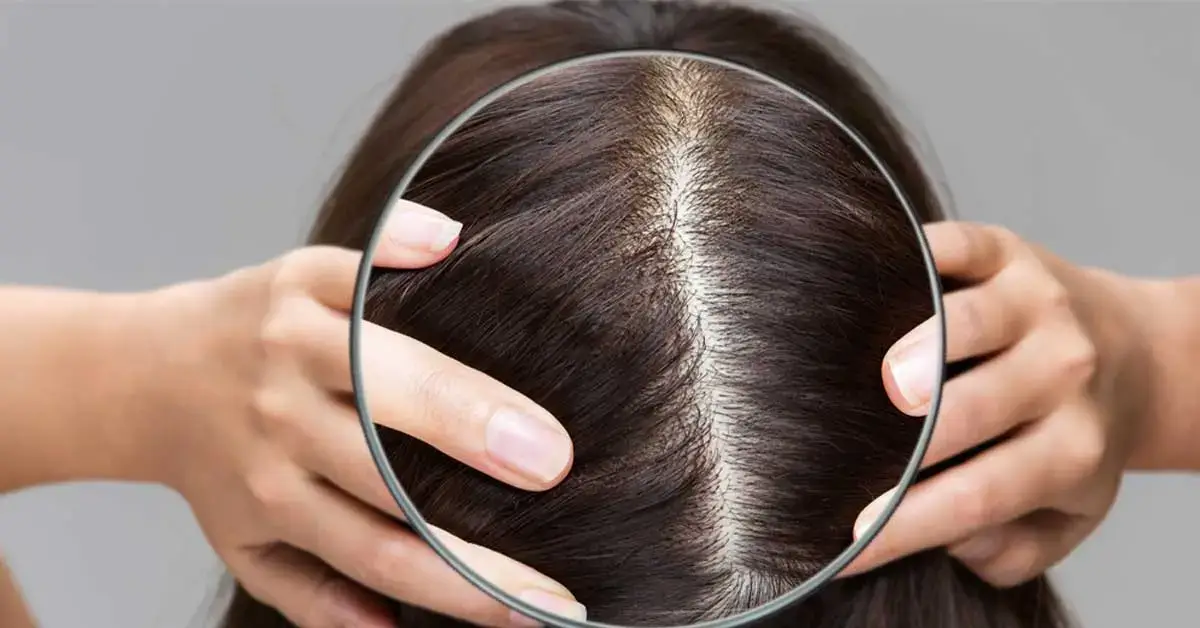
Selenium is a trace element that plays a crucial role in maintaining scalp health. Its antioxidant properties help protect the scalp from damage by external pollutants and UV radiation. Selenium is vital in the production of selenoproteins, which can help prevent dandruff and promote hair health by keeping the scalp moisturized and fostering hair growth.
Top Selenium Foods for Your Diet
Brazil Nuts: Just a couple of Brazil nuts a day can meet your daily selenium needs.
Seafood: Fish like tuna, halibut, and shrimp are good sources of selenium.
Meats: For those who include meat in their diet, beef, turkey, and chicken contain selenium.
Conclusion
This guide has walked you through the essential nutrients vital for healthier, stronger hair growth. From the structural benefits of protein and iron to the protective qualities of vitamins and minerals like selenium and magnesium, it’s clear that a well-rounded, nutrient-rich diet is fundamental for not only your overall health but also for maintaining and enhancing the health of your hair.
A balanced diet rich in these key nutrients can transform your hair from the inside out, leading to lusher, stronger, and more radiant locks. Remember, the journey to healthier hair is not solely about topical treatments; it begins with what you choose to nourish your body with. So, embrace these dietary changes with enthusiasm and patience, and let your hair reflect your inner health and vitality.
Popular Post

Best Diffuser Hair Dryer for Curly Hair – Maxodo Hair Dryer
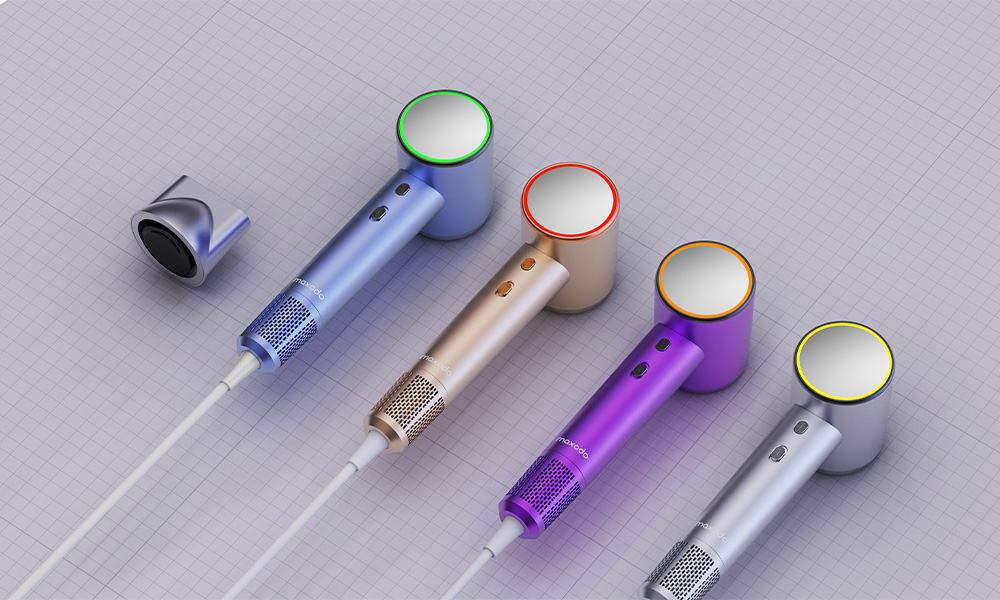
Best Salon Hair Dryers – Maxodo’s Pro Styling Solution
